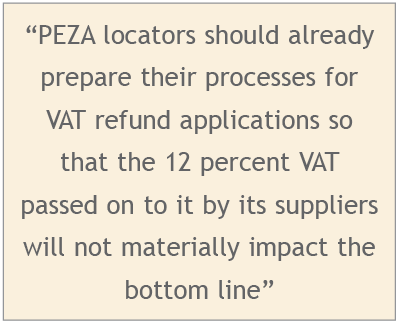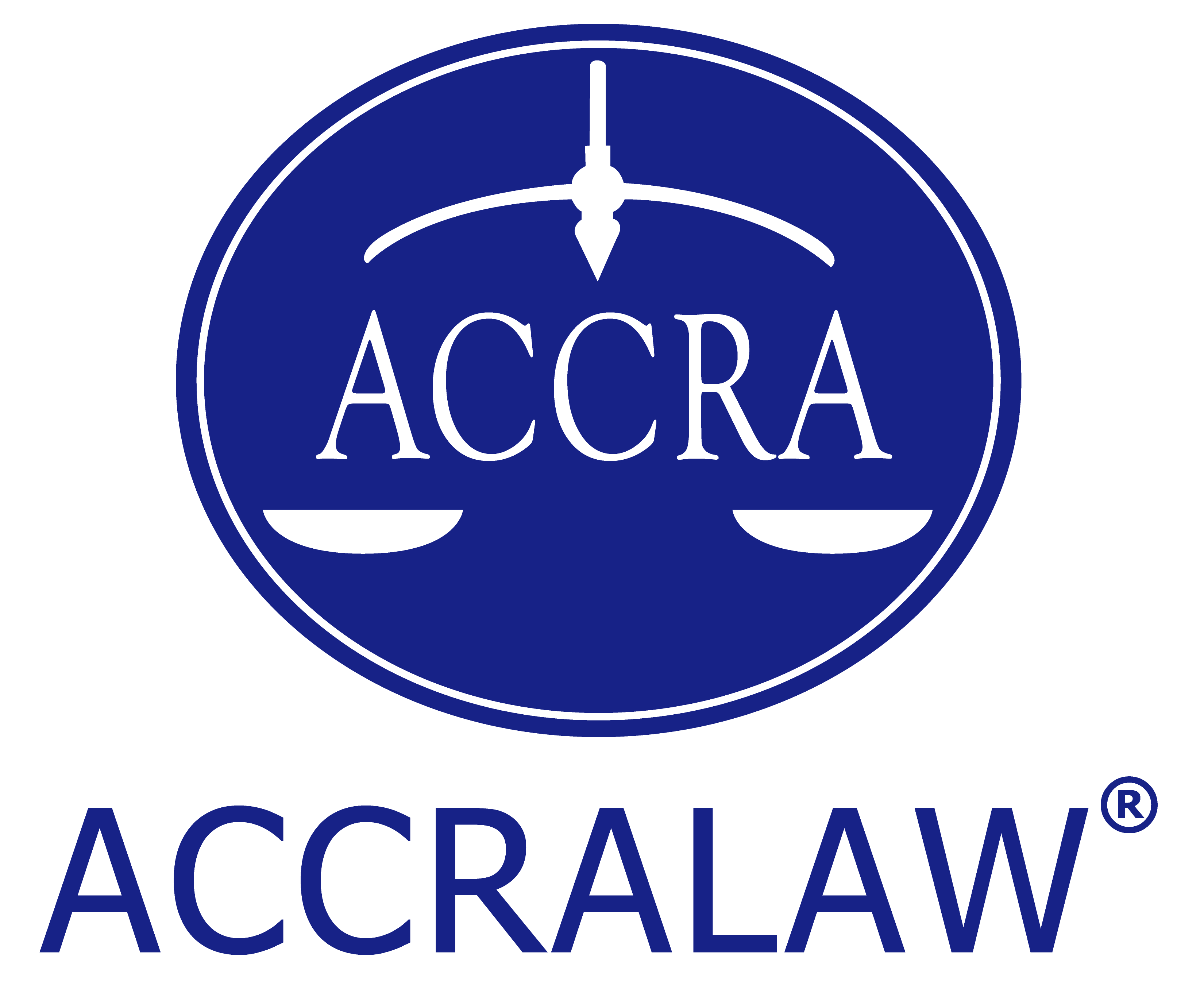 By Karen Andrea D Torres, ACCRA Law
By Karen Andrea D Torres, ACCRA Law
The Philippines enticed investors into its special economic zones with tax incentives, such as income tax holidays (ITH) or 5 percent gross income taxation (GIT), VAT zero-rated purchases and duty-free importations. However, with major tax reforms introduced and proposed by the government, business operating in these zones are facing a new business paradigm, requiring proactiveness.
Tax Reform for Acceleration and Inclusion
Provisions in Republic Act No. 10963, or the Tax Reform for Acceleration and Inclusion (TRAIN), that allowed purchases by Philippine Economic Zone Authority (PEZA) locators (ie, those registered and operating within the PEZA zones, which are considered as separate customs territory) to be VAT zero-rated were initially vetoed by the president, causing significant pushback from PEZA locators, who were appeased with Memorandum Circular No. 2018-003, which asserted that the TRAIN law does not affect the current zero-rating of sales of goods and services to PEZA locators.
The status quo, however, may just be a respite. Under the TRAIN, ultimately, only direct exporters shall be entitled to VAT zero-rated sales. This means that suppliers of direct exporters, being merely indirect exporters themselves, shall not be entitled to VAT zero-rated sales. Viewed from a different angle, sales to exporters, such as PEZA locators, or the purchases by these PEZA-locators shall no longer be VAT zero-rated, but subject to 12 percent VAT. This shall be the case upon the successful establishment and implementation of an enhanced VAT refund system.
As such, by 2020, if the DOF determines the refund system to be successful, purchases by PEZA locators may be subject to 12 percent VAT. When it happens, PEZA locators have two options — they may either treat the 12 percent VAT as part of their cost, or claim for refund. The 12 percent input VAT passed on to the PEZA locators is qualified for refund, provided these are in relation to the PEZA locator’s exports (of either goods and services), which are paid for in foreign currency.

Corporate Income Tax and Incentives Rationalisation Act
Another major shift for PEZA locators will be as introduced by the Corporate Income Tax and Incentives Rationalisation Act (CITIRA), currently pending review and deliberation. The certainty of the CITIRA passing into law may have been sealed with the support by the PEZA Office itself, previously a staunch critic to the CITIRA.
Under the CITIRA, PEZA locators will lose their ITH and 5 percent GIT status over the course of five years; exemption from the 15 percent branch profits remittance tax; exemption from local business tax; and exemption from 10 percent improperly accumulated earnings tax. After full implementation of TRAIN and CITIRA, PEZA locators will be no different from other regular corporations (except with respect to its qualified duty-free importations, which is not expressly touched upon by TRAIN and CITIRA).
Hence the question: Is there still any economic benefit to being a PEZA locator? And more important: How should a PEZA locator prepare for these changes?
It seems there are no more significant tax benefits to being a PEZA locator (except with respect to its qualified duty-free importations). While the answer is negative to the first question, the answer to the second is hopeful, with some proactiveness.
With respect to the 12 percent VAT on its purchases upon full implementation of TRAIN, PEZA locators should already prepare their processes for VAT refund applications so that the 12 percent VAT passed on to it by its suppliers will not materially impact the bottom line.
With respect to removal of the incentives under CITIRA, PEZA locators may opt to cancel their PEZA registration and apply for registration under the Strategic Investment Priority Plan (SIPP) with the Fiscal Incentives Review Board (FIRB). The SIPP shall be as formulated by the Board of Investments. Under the CITIRA, SIPP-qualified entities shall be entitled to ITH for 2-6 years, depending on location; reduced corporate income tax rate after its ITH, and in lieu of local business tax; duty-free importation on capital equipment and raw materials directly and exclusively used for its registered activity; if at least 90 percent of sales are export sales, its purchases shall be VAT zero-rated (ie, the SIPP entity does not have to file for VAT refund); and enhanced deduction for capital assets and labor. As such, PEZA locators qualified for SIPP have a lot of fiscal incentives still going for them, as long as they are aligned with the government’s investment policy.
While the business outlook for PEZA locators may seem tough, truly tough businesses know how to make good of the bad. As when the paradigm is shifting, only the truly enterprising can ride and prosper. Nothing is perpetually stable in business. It should be business as usual, but with heaps of foresight.
______________________________
This article first appeared in Business World, a newspaper of general circulation in the Philippines. The views and opinions expressed in this article are those of the author. This article is for general informational and educational purposes, and not offered as, and does not constitute, legal advice or legal opinion.
The author is a Senior Associate of the Tax Department of the Angara Abello Concepcion Regala & Cruz Law Offices (ACCRALAW). She may be contacted at kdtorres@accralaw.com or (632) 8830-8000.

T: (63) 2 830 8000


